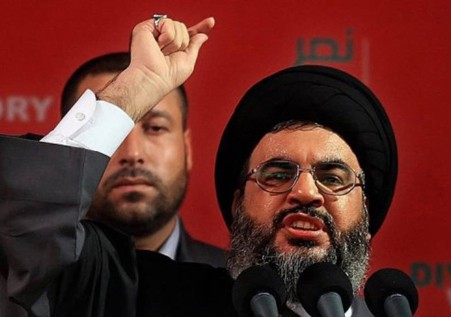For once, we have been witnessing an objective convergence of American and Iranian interests in the Middle East. For different internal and external reasons, Washington and Tehran not only want there to be no escalation in the Israeli-Palestinian conflict, but even for the Niovember truce in Gaza to have continued.
The latter, initially negotiated to allow the release of Israeli hostages kidnapped on October 7, by Hamas, xould very well have very well continued under cover of other humanitarian reasons.
The physical elimination of all fighters of the Palestinian Islamist movement was no longer among Joe Biden’s priorities when he addressed America and the world from Nantucket on November 24, after the first successful release of hostages Israelis and Palestinian prisoners.
Now the US president’s proclaimed emergency has become stopping the bloodshed in Gaza alongside the release of Israeli hostages.
Internally, the shift in Democratic leader Joe Biden’s Middle East policy can be explained by the unofficial – if not the official = start of the presidential election campaign in the United States – for a one-round election, which will be held on Tuesday 5 November 2024.
The American president’s very firm support for Israel has, in recent weeks, led to the gradual abandonment of a large part of the Arab electorate, and young people, within the Democratic Party. On progressive campuses on the East Coast and in California, the Palestinian cause is a hit.
Joe Biden is also attacked on his right. Donald Trump does not waste a media opportunity – and he does not miss one – to emphasise that his rival is the president of wars while he had managed to avoid them, during his first term, from 2017 to 2021. Trump notably affirmed that if he had stayed in the White House, Russia would never have attacked Ukraine.
It is a fact that no major war has been launched during the mandate of Trump, a man who has always been wary of neoconservative theories favoring democracy and justice over peace.
When the Pentagon proposed a bombing of Iran in June 2019 in retaliation for an American drone shot down by the Revolutionary Guards over the Strait of Hormuz, Donald Trump called off the raid at the last minute, believing that action lethal force was unjustified when America had not lost a soldier.
Externally, the White House knows that its Arab allies in the Middle East (Egypt, Jordan, the Gulf petromonarchies) are demanding an end to this war, which is terribly damaging to the image of the West among the Muslim populations of the Arab world/. At the urging of the Americans, all these countries had taken the internal risk of establishing diplomatic or commercial relations with Israel.
Furthermore, more and more American strategists believe that America has allowed itself to get too involved in the complicated affairs of Eastern Europe and the Middle East and that it is making a strategic error in not to focus on its rivalry with the Chinese, not to bet everything on maintaining its influence in the immense Indo-Pacific zone.
Why does Iran also want an end to hostilities in the Middle East? The mullahs are not crazy enough to provoke a direct war with America, which could destroy the entire Iranian fleet in the blink of an eye.
Responsible for war and peace, the Iranian supreme leader will never accept that a movement external to him, even a friendly one, imposes its strategy and timing on him. On November 6, 2023, Ayatollah Ali Khamenei granted an audience to Ismail Haniyeh, the political leader of Hamas, currently in residence in Qatar.
When the Palestinian politely reproached the Persian for his slowness in joining the fight against Israel, the latter replied that the Iranians had not been warned in advance of the October 7 attack and that = as a result = they would continue to support Hamas diplomatically and morally, but not militarily.
Looking at the Arab-Muslim crowds demonstrating across the planet against Israel and the West, Iranian leaders know that they are winning a war without sacrificing a soldier. Like in 2003, when the Anglo-Saxons handed Iraq over to them on a silver platter.
Today Tehran is discreetly discussing, via selected intermediaries (in Qatar, Lebanon, Oman), with the Americans, with the aim of one day reaching a global security agreement, which would gradually bring down the sanctions.
In the hands of the mullahs, current Russian and Chinese support is an asset, more than a liability. As long as their theocratic regime is not called into question, Iranian clerics are ready for all kinds of arrangements on the altar of trade.
This post first appeared in Le Figaro on November 28.





